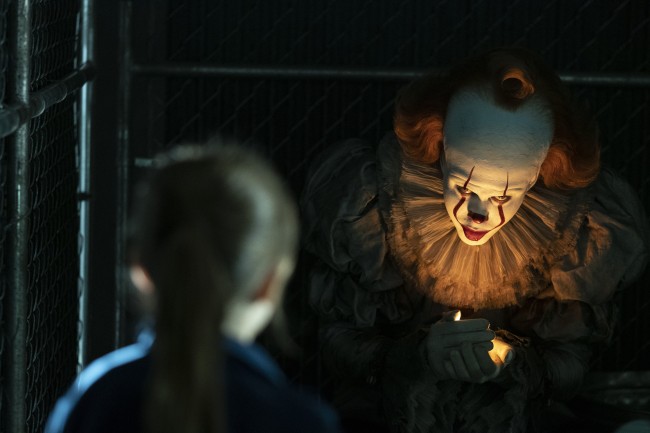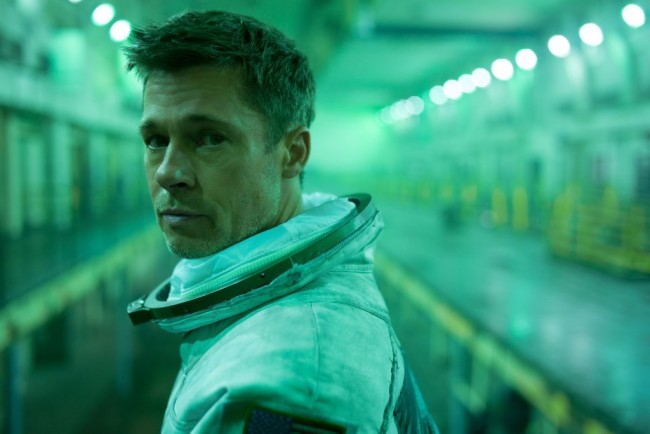Movie City Indie Archive for September, 2019
Dad Star Man: A Review Of AD ASTRA

What if there was intelligent life at the farthest reaches of the studio system?
Fully a fable, a chamber piece within outer space, “Ad Astra” is flint and lyric: the search for self, the search for God, the transformation of thought into light playing off an iconic face in close-up against the bold but airless light of a greater universe. James Gray’s marvel of a paranoid thriller, antagonistically serene, otherworldly yet wholly concrete is an uncommon attainment of visual and sonic beauty, ready and ripe to be madly misunderstood. In this near future, the moon is colonized and is a waystation to travel to Mars and, clandestinely, beyond. Brad Pitt is mid-career astronaut Roy McBride, forever in the penumbra of his father, H. Clifford McBride (Tommy Lee Jones), who, the space agency attests, vanished nearly three decades earlier as part of the Lima Project, a top-secret experiment that nestled in the rings of Neptune. (Their goal had been to sense intelligent life beyond the edge of human attainment.) Roy is self-contained: taciturn, calm, hardly winded by the worst of physical and psychological challenges. He’s summoned after a global “Surge”: power strikes, cosmic rays blast from the heavens and kill tens of thousands. Could his decades-absent father be alive, a terrorist hurling the fire of antimatter, reveling in unsound methods? [Read more.]
Grown Goonies In The Boonies: A Review of IT Chapter 2

 “IT” has… stuff. [Mild spoilers.] You know if you want to see it, and if you want to see it, you’ll see it, and if you have reservations about seeing it, IT Chapter 2, or, “Grown Goonies in the Boonies,” is likely not for you.
“IT” has… stuff. [Mild spoilers.] You know if you want to see it, and if you want to see it, you’ll see it, and if you have reservations about seeing it, IT Chapter 2, or, “Grown Goonies in the Boonies,” is likely not for you.
Set in a visually undistinguished edition of Stephen King’s Maine-of-the-mind, the further deaths by misadventure of the make-it-up-as-you-go-along clown Pennywise should creep or repulse only the most devoted fans of the 2017 original or the most hidebound of coulrophobics. (Fan service and callbacks be thy curse.) Twenty-seven years after the doings of the $700 million worldwide-grossing adaptation of the early going of King’s 1,138-page skull-cracker, the Losers’ Club grown large, which once defeated the spectral murderer Pennywise, return to Derry in 2016 for a final bout. The opening hate crime-turned-murder that signals the return of the nightmare creature ends with a skyful of red balloons about as haunting as a pile-on of emojis rising from on Instagram on someone’s birthday. (The preceding torture and death goes on a good while, and includes extremely crunchy sounds of bodily harm.) [Read more.]











